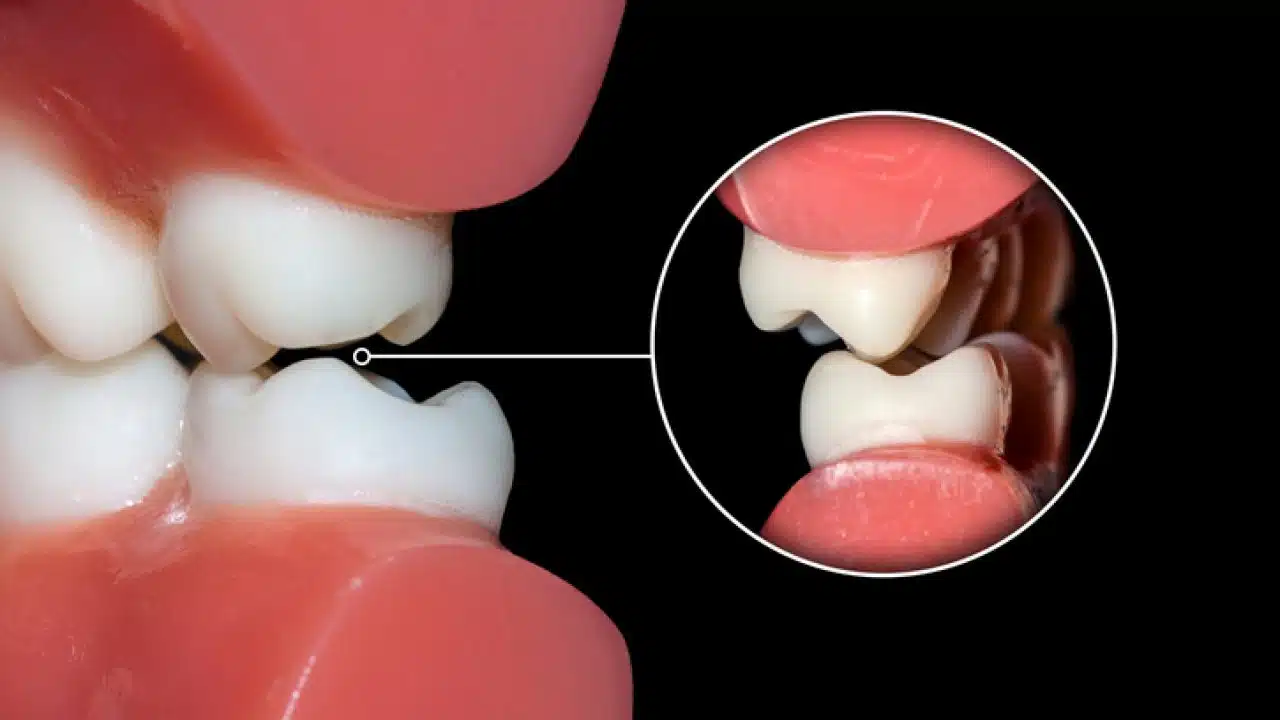
Bruxism is known as teeth grinding, either during the day or while sleeping. It occurs when the upper teeth are tightly clenched with the lower ones, and they also move from back to front and vice versa, generally unconsciously. It usually happens at night while we sleep and what we perceive when we get up is jaw pain or even headache.
Although some people have no symptoms, bruxism can cause:
- Jaw, ear, and jaw pain.
- Temporomandibular joint problems.
- Headache.
- Anxiety.
- Tension.
- Tooth sensitivity to cold, heat, and sweet foods.
- Insomnia.
The causes of bruxism are not sufficiently known, although stress is considered to be the most important trigger, although there are others that may contribute to its occurrence:
- Inadequate alignment of teeth.
- Feeding.
- The posture.
- Sleep habits etc.
Traditionally, dental protectors or splints have been used to prevent bruxism during sleep and thus prevent the damage that this disorder can cause to the teeth and the problems of the temporomandibular joint. However, splints do not resolve the problem, and even if the pain disappears while in use, it does reappear if it is discontinued.
Precisely, one of the priority objectives of the treatment is the elimination of pain, for which there are many resources:
- Relaxation exercises.
- Application of ice or hot cloths to the area where the pain occurs.
- Avoid eating hard and sweet foods.
- Drink a lot of water.
- Massage the areas where the pain occurs.
- Sleep well.
PREVENTS TEETH GRINDING FROM GOING FURTHER
The main trigger is stress since the tension builds up in the jaw, which uses the night to release it by clenching the teeth. To avoid the problem or at least stop it:
- Do relaxation and stretching exercises for your jaw muscles. Try this one, for example: stretch your neck by lifting your chin and pulling your jaw forward. Stay in this position for 5 seconds and relax. Repeat 10 times.
- Give yourself a self-massage to relax the muscles around your jaw. Bring the two index fingers from the earlobes to the cheeks and repeat 15 times.
- Do not chew gum often because the damage could be aggravated.
- The use of discharge splints is common. It is a piece of resin made to measure, that the affected person must be placed between the teeth before bed. Thanks to it, the jaw is more relaxed and the teeth protected.
- If the denture is damaged, using porcelain crowns (a kind of dental caps) helps to regain the shape of the teeth and prevent wear.
Is there a treatment?
Although there are many relaxation techniques and home remedies that can help reduce stress and consequently bruxism, the truth is that there is no treatment that eliminates it directly and permanently. Today experts recommend using a specific splint, which helps keep the jaw in a relaxed position and protects teeth from grinding. It is a plastic or resin prosthesis that is made to measure so that it fits perfectly to the teeth to prevent them from colliding with each other.
There are also preformed plastic protectors that are less expensive, but often do not fit the bite properly and can be very uncomfortable. The most advisable thing is to go to the dentist to determine if there is a bruxism problem and to know the best treatment options.
Dr. Brandon Schmidt | 16-July-2020

